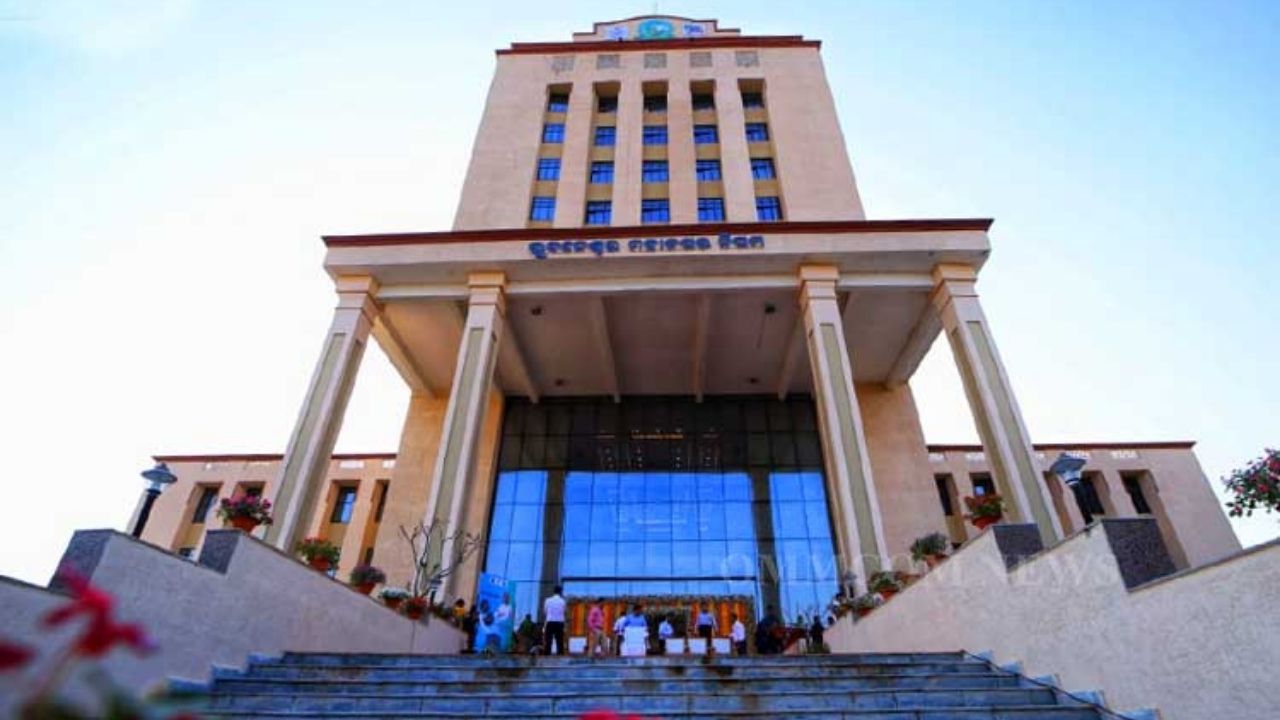In an unfortunate incident, 44 students from Ravenshaw University in Cuttack, Odisha, were admitted to the SCB Medical College and Hospital following suspected food poisoning. The students, hailing from two of the university’s hostels, began experiencing symptoms such as diarrhea, uneasiness, and vomiting after consuming meals served in the university’s hostel. The situation has raised concerns about food safety and sanitation, with many pointing to unsanitary food preparation and contaminated water as the primary suspects.

The students were rushed to the hospital, where they are undergoing treatment. The university and hospital authorities are working together to investigate the exact cause of the incident and prevent further health issues. This incident has highlighted the need for improved food safety practices, particularly in university hostels, where students rely heavily on meals provided by the institution.
Ravenshaw University Students Fall Ill Following Hostel Meal
| Key Fact | Detail |
|---|---|
| Incident | 44 Ravenshaw University students hospitalized due to suspected food poisoning. |
| Affected Groups | 37 students from the New PG Hostel and 7 from the Dharmapada Hostel. |
| Hospital Admittance | Students admitted to SCB Medical College and Hospital in Cuttack. |
| Symptoms | Diarrhea, vomiting, and uneasiness after consuming hostel meals. |
| Cause of Outbreak | Likely linked to contaminated drinking water and unsanitary food preparation practices. |
| Investigation | Ongoing investigation into the cause of food poisoning and quality of food and water. |
| Government Concern | The incident has raised concerns among local authorities regarding hygiene and safety. |
| Upcoming Visit | The President of India, Droupadi Murmu, is set to visit the university in two days. |
For more information, visit the official website of Ravenshaw University at www.ravenshawuniversity.ac.in.
The recent food poisoning incident at Ravenshaw University has raised important questions about food safety and sanitation in university hostels. While the exact cause of the outbreak is still under investigation, the incident highlights the critical need for universities to ensure that proper food safety standards are followed. By addressing these concerns and improving hygiene protocols, universities can prevent similar outbreaks in the future and protect the health of their students.
What Happened at Ravenshaw University?
On a quiet Wednesday morning, a group of Ravenshaw University students from two of the institution’s hostels began to fall ill, with symptoms ranging from mild stomach cramps to severe diarrhea. Within hours, dozens of students sought medical help, and 44 students were eventually admitted to SCB Medical College and Hospital. The majority of the students were from the New PG Hostel (37 students), while the remainder were from the Dharmapada Hostel (7 students).
The common link? A meal served the previous night in the university’s hostel. While the exact cause of the illness has not been confirmed, authorities have pointed to contaminated food and unsafe drinking water as likely contributors. This incident has shaken the student body and raised urgent questions about the university’s food safety protocols.
Symptoms and Hospitalization
The symptoms reported by students were consistent with food poisoning: vomiting, diarrhea, and general uneasiness. Many of the students had to be immediately taken to the hospital for intravenous fluid therapy to prevent dehydration. The medical team at SCB Hospital is providing 24/7 care to ensure the students’ recovery.
One of the concerning aspects of this incident is that students had raised concerns about the quality of food and water in the hostels before. According to some reports, these issues had been brought up but were not adequately addressed by the hostel authorities. With foodborne illnesses being the result of improper food handling, it is critical for universities to maintain strict hygiene standards to prevent such outbreaks.
A Deeper Look at the Cause
Preliminary investigations suggest that the outbreak may be linked to contaminated drinking water and unsanitary food preparation practices in the hostels. Poor sanitation, improper handling of food, and the use of unfiltered water may have played a significant role in triggering this health crisis.
According to health experts, foodborne illnesses are commonly caused by bacteria such as Salmonella, E. coli, or Campylobacter, all of which can lead to stomach problems, vomiting, and diarrhea. Contaminated water, particularly in institutions with large student populations, can also contribute to outbreaks, as was the case here.

The Role of Hygiene and Safety Standards
Food safety is a major concern for universities, especially those that provide meals to large numbers of students. Many universities rely on outsourced services to prepare meals for students in hostel messes, but this can sometimes lead to lapses in hygiene practices. The outbreak at Ravenshaw University serves as a reminder of the need for comprehensive food safety standards and better regulation of food suppliers.
Steps universities can take to avoid such incidents include:
- Regular inspection of food suppliers and hostel kitchens to ensure cleanliness.
- Strict adherence to food storage guidelines and temperature control.
- Proper training for staff on food handling, hygiene, and sanitation.
- Clean and safe drinking water—a vital necessity to prevent waterborne diseases.
- Immediate action and transparent communication with students if an issue arises.
Investigating the Outbreak
As authorities and medical experts scramble to pinpoint the exact cause of the food poisoning, the university administration has assured that they will conduct a thorough investigation. This will include testing the food and water sources to determine the exact source of contamination.
In the coming days, the university plans to revise its food safety policies, ensuring that future meals served to students are thoroughly vetted for safety. They are also likely to increase awareness campaigns to educate students on maintaining hygiene in hostel facilities.
Impact on Students and University
This incident has not only affected the health of students but also shaken the reputation of Ravenshaw University, a prestigious educational institution in the region. With President Droupadi Murmu scheduled to visit the campus in just two days, the university is under increasing pressure to address the situation promptly and assure stakeholders that steps are being taken to prevent future outbreaks.
In the aftermath, university students have expressed frustration over the quality of food and water at the hostels. Several students have taken to social media, sharing their experiences and calling for urgent reforms in the hostel administration.
Odisha Holds 44 Bengali Migrant Workers as Citizenship Verification Process Continues
Brown Sugar Seized from Mixture Packets in Odisha; 150gm of Drugs Found
Private Buses Back on Track: Relief for Odisha Passengers Amid Drivers’ Strike
FAQs
What caused the food poisoning at Ravenshaw University?
Preliminary investigations suggest that contaminated drinking water and unsanitary food preparation practices in the hostels may have contributed to the food poisoning outbreak.
How many students were affected?
A total of 44 students from two hostels at Ravenshaw University were hospitalized due to symptoms like diarrhea, vomiting, and stomach cramps.
What actions are being taken by the university?
The university has launched an investigation into the cause of the outbreak and is taking steps to improve food safety practices and hygiene standards in the hostels.
Will the university provide compensation to the affected students?
While the university has not confirmed compensation, they have assured that they are working to resolve the situation and prevent any future health issues for students.
How can foodborne illnesses be prevented?
Universities should enforce strict food safety protocols, including regular inspections, proper food storage, and clean water for students. Education on hygiene practices is also vital for students living in hostels.





